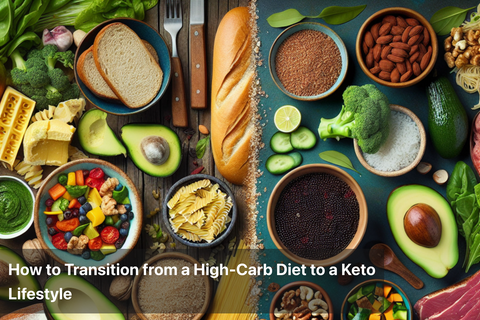
How Keto Helps Control Blood Sugar Levels in Diabetics
Diabetes is a chronic condition affecting millions worldwide, marked by high blood sugar levels and impaired insulin function. While medications and insulin therapy are commonly prescribed, dietary choices play a crucial role in blood sugar management. The ketogenic diet, known for its very low-carb and high-fat approach, has gained significant attention for its potential to stabilize blood glucose levels, reduce insulin resistance, and even reduce dependency on medications for some individuals with type 2 diabetes.
Understanding how the ketogenic diet works and why it can be beneficial for people living with diabetes sheds light on its growing popularity among healthcare professionals and patients alike.
Understanding Diabetes and Blood Sugar Imbalance
Diabetes primarily occurs when the body either doesn’t produce enough insulin (type 1 diabetes) or becomes resistant to the insulin it does produce (type 2 diabetes). Insulin is a hormone that helps transport glucose (sugar) from the bloodstream into cells for energy. When insulin doesn’t function properly, glucose accumulates in the blood, leading to a range of symptoms and complications.
Common symptoms of diabetes include:
Frequent urination
Excessive thirst
Unexplained weight loss
Fatigue
Blurred vision
Slow wound healing
Chronic high blood sugar levels can damage blood vessels, nerves, and organs, increasing the risk of heart disease, kidney failure, neuropathy, and vision problems.
How the Ketogenic Diet Works
The ketogenic diet restricts carbohydrate intake to approximately 20–50 grams per day, replacing it with healthy fats and moderate protein. This drastic reduction in carbohydrates forces the body to enter a metabolic state called ketosis, where fat is used as the primary source of energy instead of glucose.
In ketosis, the liver breaks down fats into molecules called ketones, which serve as an alternative fuel for the body and brain. Because the body no longer relies heavily on carbohydrates, blood sugar levels stabilize, and insulin demand significantly decreases.
The Link Between Carbs and Blood Sugar
Carbohydrates are the macronutrient with the most significant impact on blood glucose levels. Upon digestion, carbs are broken down into sugar and absorbed into the bloodstream, causing a rise in blood sugar. In people with diabetes, this rise is more dramatic and sustained due to impaired insulin response.
By drastically reducing carbohydrate intake, the ketogenic diet minimizes post-meal blood sugar spikes and supports more consistent glucose levels throughout the day. This effect can be especially beneficial for those with type 2 diabetes, insulin resistance, or prediabetes.
Key Benefits of Keto for Diabetics
1. Improved Blood Glucose Control
Numerous studies have shown that the ketogenic diet can significantly reduce HbA1c levels (a marker of long-term blood sugar control). Many individuals with type 2 diabetes experience more stable blood sugar readings within weeks of starting keto.
2. Reduced Insulin Resistance
Keto reduces the body’s need for insulin by minimizing carbohydrate intake. Over time, this can improve insulin sensitivity, making the body more responsive to the hormone and improving metabolic health.
3. Weight Loss Support
Excess body weight is closely linked to insulin resistance. The ketogenic diet promotes fat loss by encouraging the body to burn stored fat for fuel. Weight loss often improves glycemic control and reduces the need for diabetes medications.
4. Lower Triglycerides and Better Cholesterol Ratios
Keto can positively influence lipid markers by reducing triglyceride levels and increasing HDL (good cholesterol). This is especially important for diabetics who face higher risks of cardiovascular complications.
5. Reduced Medication Dependency
As blood sugar levels stabilize and insulin sensitivity improves, many patients under medical supervision are able to lower or discontinue medications like metformin or insulin.
Potential Challenges and Considerations
While the keto diet offers significant benefits, it may also present challenges, particularly during the initial adaptation phase. Diabetics need to be especially cautious, as reducing carbohydrate intake while continuing to take insulin or other glucose-lowering medications can cause hypoglycemia (dangerously low blood sugar levels).
Common early symptoms during transition:
Fatigue
Dizziness
Sugar cravings
Headaches
Mood changes
Muscle cramps
These symptoms, often referred to as the "keto flu," typically subside within a few days and can be managed with proper hydration, electrolyte supplementation, and adequate rest.
It's essential for diabetics to work closely with a healthcare provider when starting keto to adjust medication doses and monitor blood sugar regularly.
Best Keto Foods for Blood Sugar Control
Diabetics following a ketogenic lifestyle should focus on whole, nutrient-dense foods that support stable blood sugar and overall metabolic health.
Food Group |
Recommended Options |
|---|---|
Proteins |
Eggs, chicken, turkey, fatty fish (salmon, mackerel), paneer |
Healthy Fats |
Avocados, olive oil, ghee, nuts and seeds, coconut oil |
Low-Carb Veggies |
Spinach, kale, cauliflower, zucchini, bell peppers, cucumbers |
Snacks & Staples |
LO Foods keto snacks, low-carb breads, keto cookies, keto atta |
Dairy |
Greek yogurt (unsweetened), cheese, cream |
Hydration |
Water, lemon water, herbal teas, bone broth |
LoFoods provides an extensive range of diabetic- and keto-friendly products, making it easier to enjoy familiar Indian foods while maintaining carb control. Their low-carb atta, bread, namkeen, and sweet treats allow for sustainable eating habits without sacrificing taste or culture.
Who Should Avoid or Modify Keto?
Although keto is generally safe, it may not be suitable for everyone. The following individuals should approach with caution:
Type 1 diabetics (should only follow under strict medical supervision)
Pregnant or breastfeeding women
Individuals with a history of eating disorders
People with kidney or liver conditions
Those on certain medications (e.g., SGLT2 inhibitors)
A modified or supervised version of keto may be more appropriate in these cases.
Summary
The ketogenic diet offers a powerful, food-based approach to managing diabetes by targeting the root cause: blood sugar imbalance and insulin resistance. By eliminating high-carb foods and fueling the body with healthy fats and protein, keto helps stabilize glucose levels, enhance insulin sensitivity, and promote sustainable weight loss.
For individuals with type 2 diabetes, the benefits of keto can be life-changing. When paired with proper medical guidance, regular monitoring, and access to reliable low-carb products like those from LO Foods, this dietary approach can support long-term health and better blood sugar control.
This Blog post is an initiative by Lo! Foods, to provide accurate and Nutritionist / Doctor approved information related to Health. Lo! Foods is India's leading brand for Everyday Functional Foods. Foods designed for specific Health conditions or Needs. Lo! Foods also runs India's largest range of Low Carb Healthy Cloud Kitchens, under the brand names of Lo!, ProteinChef, ATH (All Things Healthy) and DiabeSmart.















Leave a comment
Your email address will not be published.